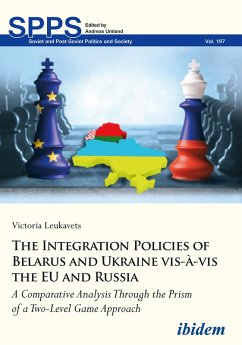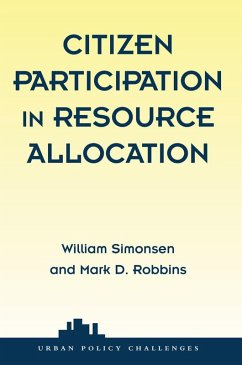
Europe's Last Dictatorship - U.S. Democratization Efforts in Belarus (eBook, ePUB)
Versandkostenfrei!
Sofort per Download lieferbar
Statt: 16,95 €**
13,99 €
inkl. MwSt. und vom Verlag festgesetzt.
**Preis der gedruckten Ausgabe (Broschiertes Buch)
Alle Infos zum eBook verschenkenWeitere Ausgaben:

PAYBACK Punkte
0 °P sammeln!
Seminar paper from the year 2006 in the subject Politics - Miscellaneous, grade: 2,0, Durham University, language: English, abstract: [...] Since its official establishment in 1991, Belarus has struggled with the implementation of democratic policies. The republic is a nominal democracy and was pursuing liberal reforms after gaining independence, however, since his election in 1994, its current president Alyaksandar Lukashenka, was repeatedly able to expand his almost autocratic powers. The fact that most other countries in Eastern Europe have democratized more or less like textbook examples m...
Seminar paper from the year 2006 in the subject Politics - Miscellaneous, grade: 2,0, Durham University, language: English, abstract: [...] Since its official establishment in 1991, Belarus has struggled with the implementation of democratic policies. The republic is a nominal democracy and was pursuing liberal reforms after gaining independence, however, since his election in 1994, its current president Alyaksandar Lukashenka, was repeatedly able to expand his almost autocratic powers. The fact that most other countries in Eastern Europe have democratized more or less like textbook examples makes Belarus' autocracy a true exception. In this paper, the question will be answered why democratization has so far failed in post-communist Belarus. To answer this question thoroughly, it is indispensable to portrait the pre-transitional history and political climate in communist Belarus (section 2.), as well as the actual transition process starting in 1989 (section 3.). The research then turns to the question of how and to what extent external actors, especially the U.S. and Europe, engaged in democratization efforts (section 4.). Eventually, the analysis of external and internal factors will answer the central question of why democracy failed in Belarus (section 5.). It will be determined whether international efforts have been made effectively and correctly, and also, which domestic factors averted a move towards democracy. The results found in this research indicate that international actors failed to recognize Belarus' exceptionalism among democratizing Eastern European countries and therefore virtually missed the crucial period in which democratization was still a political possibility for Belarus. Most importantly, however, internal factors were most significant in the authoritarian development of Belarus. Weak traditions of democracy, statehood, and national identity made and continue to make the Belarusian people an easy target for dictatorial rule. The evaluation of the transitional process in Belarus will be based on primary sources such as official documents published by U.S. and European government authorities. Furthermore, press releases, scientific journal articles, news articles, and information from book chapters will complete the picture.
Dieser Download kann aus rechtlichen Gründen nur mit Rechnungsadresse in A, B, BG, CY, CZ, D, DK, EW, E, FIN, F, GR, HR, H, IRL, I, LT, L, LR, M, NL, PL, P, R, S, SLO, SK ausgeliefert werden.













